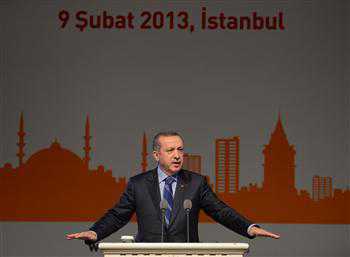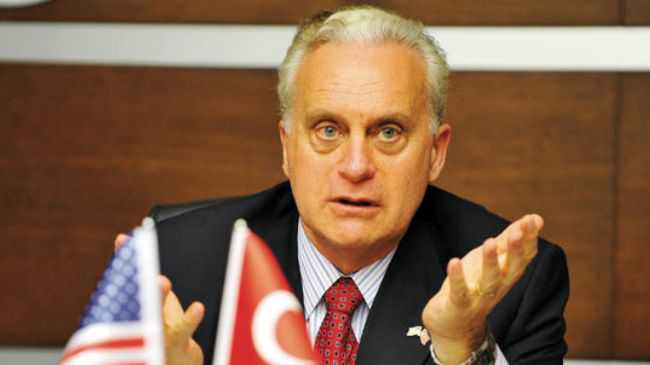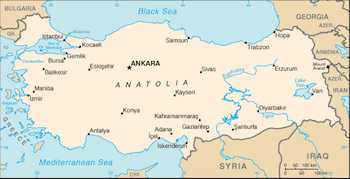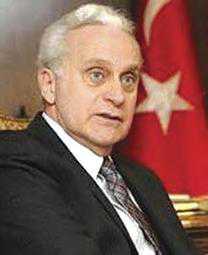Turkish Prime Minister Recep Tayyip Erdoğan criticized U.S. envoy to Turkey Francis Ricciardone’s remarks on long detention periods in Turkey during a speech at the ruling Justice and Development Party’s (AKP) Istanbul advisory council on Feb. 9. Erdoğan quoted a poem by famous Turkish poet Mehmet Akif Ersoy and, without explicitly citing the U.S. ambassador’s name, called Ricciardone’s criticisms of the Turkish judiciary “unacceptable.”

“No one should be mistaken about our patience, tolerance and friendliness. Turkey is not anybody’s scapegoat. Turkey is not a country with which to meddle in its internal issues or its executive, legislative and judiciary systems. And certainly not a country whose foreign policy guidelines can be dictated [by others],” Erdoğan said.
Ricciardone had criticized the fact that military leaders in Turkey were behind bars “as if they were terrorists” during a meeting with Ankara media bureau chiefs on Feb. 5, provoking heated reactions from many officials from the government and AKP cadres.
“When a legal system produces such results and confuses people like that for terrorists, it makes it hard for American and European courts to match up. We are working to reconcile our legal processes in both countries,” he said.
‘Patience running out’ with EU on terrorism
During his speech, Erdoğan also accused European Union members of protecting terror suspects linked to groups operating in Turkey, saying that Turkey’s patience “was running out.” Referring to the killing of three Kurdish women, including a co-founder of the Kurdistan Workers’ Party (PKK), in Paris on Jan. 9 that disrupted the peace process regarding the Kurdish issue, as well as the Feb. 1 attack on the U.S. Embassy in Ankara perpetrated by an ex-convict living in Germany who entered Turkey illegally via Greece, Erdoğan criticized European countries for being far too “gentle” in the fight against terrorism.
“While you always talk about the terrorism issue, why don’t you support Turkey’s own fight against terrorism? The terrorists searched for with [the highest priority] have been taken under the wing of certain European countries. Why then do you accuse Turkey of not complying with the [political] criteria [of the EU]? You show so much clemency to the terror for which Turkey has paid a very high price,” Erdoğan said, adding that the EU was showing Turkey a double standard when it came to terrorism.
Erdoğan also complained that European officials talked about “freedom and law” when Turkey asked them to extradite suspects. He stressed that he will bring up this issue during a meeting with the envoys of EU countries on Feb. 11. “We have already told every [European] leader we meet that our patience is now very low,” he said.
Operations will cease when arms are laid down
Erdoğan also commented during his speech on the ongoing peace process with the PKK and emphasized that the operations of security forces would not stop until the PKK lays down its arms.
Warning of a possible repeat of the “Habur incident” of 2009, when eight PKK members and 28 Kurdish refugees from the Makhmour Camp located on the Kandil Mountains in Iraq entered Turkey at the Habur border gate to a festive welcome, Erdoğan said that the same errors will not be allowed and that militants will be forced to leave the country. The “Habur incident” was perceived as “a show of force” by the government and sparked public outcry within the rest of Turkey, eventually causing the peace initiative at that time to come to a halt.
February/09/2013
via POLITICS – Erdoğan slams US envoy’s remarks, saying ‘Turkey is not anybody’s scapegoat’.





